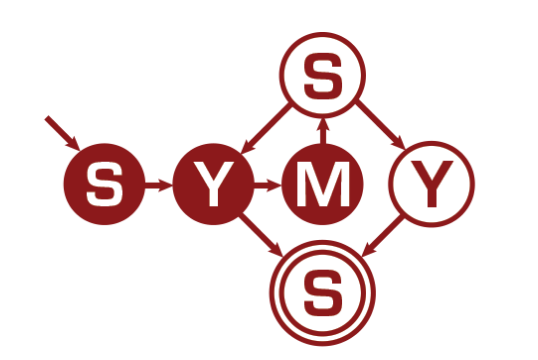Humans of SymSys: Beata Petkowa
/"There are people who thrive in their fields of expertise, but find it challenging to think cross-contextually. I am the opposite. I was born in a multicultural and multilingual family, moreover raised in 5 different countries and exposed to 5 different educational systems. It felt thus natural for me to chose an interdisciplinary major like Symbolic Systems..."
Beata is a junior majoring in Symbolic Systems with an individually-designed concentration in the behavioral aspects of HCI and tech-related entrepreneurship.
Introduce yourself: My name is Polish, my last name is Bulgarian, but I consider myself to be a rather culturally ambiguous blend. Majoring in SymSys with a self-designed concentration and minoring in Modern Art History under the awe-inspiring leadership of Alexander Nemerov. I am also working for the Stanford Technology Ventures Program on how to make their entrepreneurship courses and events more relatable to a wider spectrum of students.
What drew you to the SymSys major? Why did you pick SymSys as opposed to other (especially, related) majors?
Quite frankly, I am perfectly incapable of studying just one thing. There are people who thrive in their fields of expertise, but find it challenging to think cross-contextually. I am the opposite. I was born in a multicultural and multilingual family, moreover raised in 5 different countries and exposed to 5 different educational systems. It felt thus natural for me to chose an interdisciplinary major like Symbolic Systems and fulfill my interest in future technologies from multiple perspectives, but also belay my academic attempts with sufficient rigor.
What is your concentration and why did you choose it?
In order to escape higher level CS classes and get myself closer to what I felt truly passionate about, I decided to grab fate by its balls and self-design my concentration. I am currently tailoring it towards the behavioral aspects of Human Computer Interaction and combining it with the study of tech-related entrepreneurship. So if I ever earn the honor of becoming a true Palo Alto Mom, I'll use these insights to ponder less on the choice between Blue Bottle versus Soul Cycle, but more on the question of how to transform the Silicon Valley so that it addresses truly global problems.
What’s your favorite SymSys-related class that you’ve taken so far?
If forced to pick one class, I'd say Phil1 with Nadeem Hussain. It was a terrific introduction to Philosophy and I think that's been mostly thanks to Nadeem. Whether we considered arguments for the existence of God or argued about the body-mind problem, he would make the discussion extremely logical to follow and also exceptionally engaging.
What is one piece of advice you'd like to offer to younger students?
Just do your thing. Absorb new ways of thinking and doing, but never lose track of what makes you unique. Work on communicating your truth, so that without major compromises, you can let others believe in whatever you're trying to achieve. And if you don't know what that is yet, try the opposite of freaking out. Chill. If it's not good yet, it's not the end.
What underlying questions and issues do you hope to tackle/learn more about through SymSys?
I'm looking forward to acquiring more intellectual frameworks and practical skillsets to tackle the issue of how to humanize technology without dehumanizing ourselves.
What’s the coolest (loosely) SymSys-related topic that you’re excited about right now?
I am really curious how the application of machine learning to widely accessible devices like smartphones or home assistants will unfold for us. It's already been a while since fields like vision recognition or natural language processing have been enriched by processes underlying artificial intelligence. But the the past few years were quite different in the sense that deep learning mechanisms have slipped into our everyday lives and way more personalized contexts. And it makes me wonder. Not only about how AI will keep adapting to our token bedrooms, but also how we as humans will continue to adapt to only more complex interactions with our computer counterparts.
Beata is one of many profiles featuring selected alumni, undergraduates and graduates who are involved in the Symbolic Systems community.




